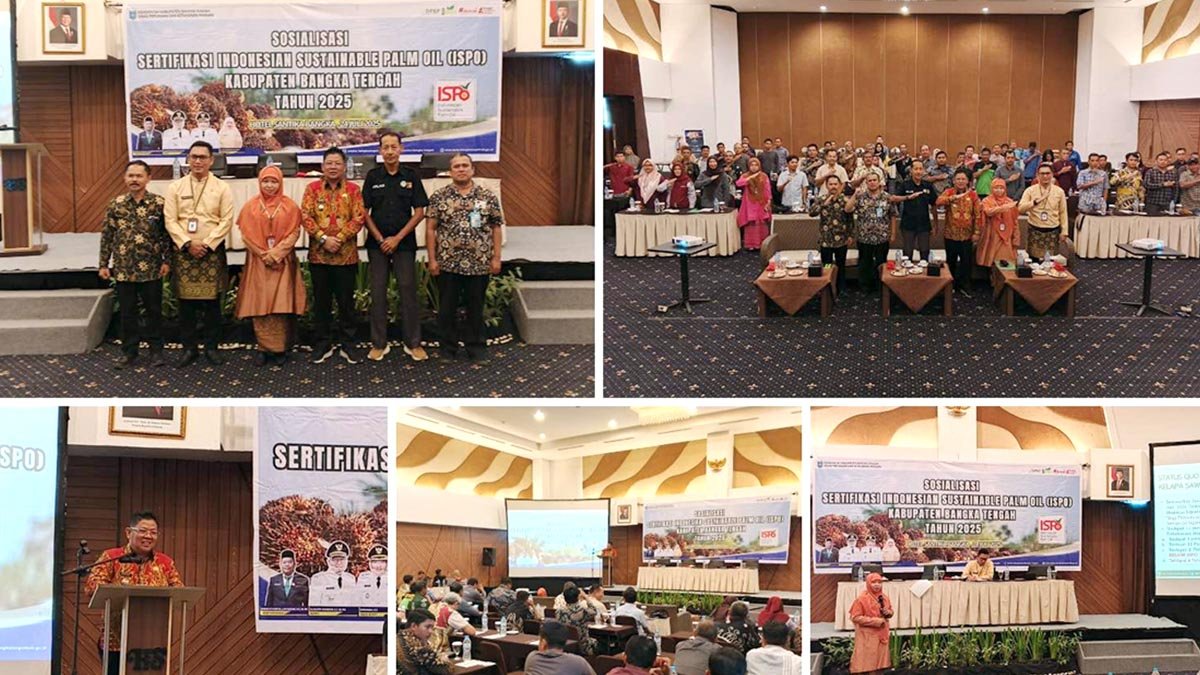PALMOILMAGAZINE, PANGKALANBARU – The Bangka Tengah Regency Government, through its Agriculture and Food Security Office (DPKP), once again held a socialization program on Indonesian Sustainable Palm Oil (ISPO) certification. The event took place at Hotel Santika, Pangkalanbaru, on Thursday (July 24, 2025).
The program was officially opened by Bangka Tengah Deputy Regent Efrianda, accompanied by Head of DPKP Bangka Tengah, Dr. Dian Akbarini, S.Si., M.Si. In her remarks, Dian stressed that the initiative is crucial for all stakeholders, including smallholders, farmer groups, agricultural extension workers, village and sub-district officials, as well as corporate partners.
“This outreach aims to enhance smallholders’ knowledge and understanding of ISPO certification concepts and obligations. It also encourages the adoption of sustainable oil palm cultivation practices, formulates strategic steps to support smallholder certification, and strengthens synergy between government, farmers, and related stakeholders,” Dian explained, as quoted by Palmoilmagazine.com from Diskominfosta Bangka Tengah.
Also Read:
Around 100 participants attended the interactive session. Dian expressed hope that the program would better prepare smallholders in Bangka Tengah for certification, particularly in areas such as land legality, group management, and proper record-keeping of cultivation activities. She added that achieving certification could also unlock opportunities for incentives and sustainability-based partnerships.
Deputy Regent Efrianda welcomed the initiative and emphasized the importance of ISPO certification, noting that palm oil is a strategic commodity in Bangka Tengah.
“Palm oil is not only the main source of income for thousands of smallholder families, but it also makes a significant contribution to regional revenue and job creation,” he said.
Efrianda further explained that ISPO is a national certification system developed by the Indonesian government to ensure that palm oil production adheres to sustainability principles.
“These principles include compliance with laws and regulations, the application of good agricultural practices, environmental and natural resource management, biodiversity protection, transparency, and continuous business improvement,” he stressed.
The event also featured a presentation from Dr. Dian Akbarini on ISPO policy in Bangka Tengah. Other attendees included Maladi, Chairman of Apkasindo Bangka Tengah, and Muhammad Isa Anshorie, Head of Plantations at the Bangka Belitung Islands Province DPKP, who shared their perspectives on local-level certification implementation. (P3)
